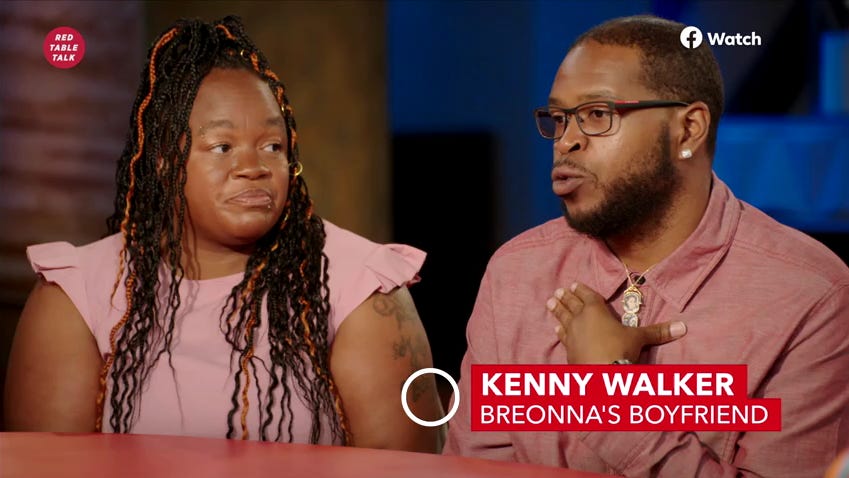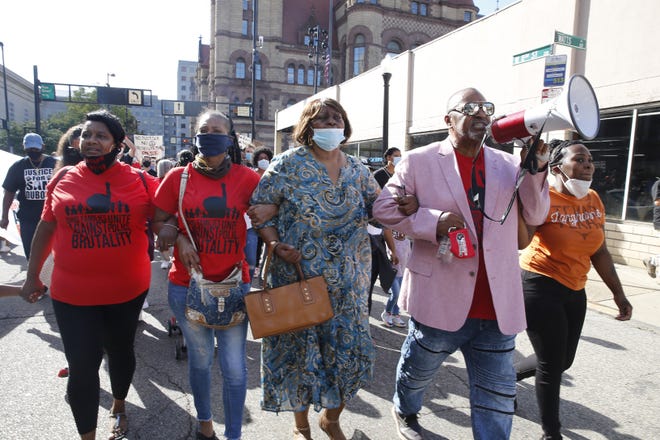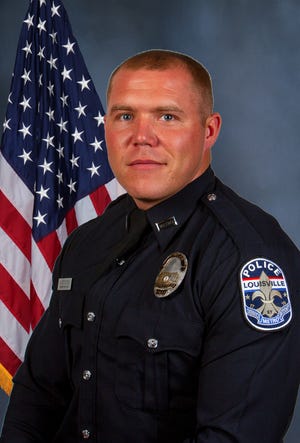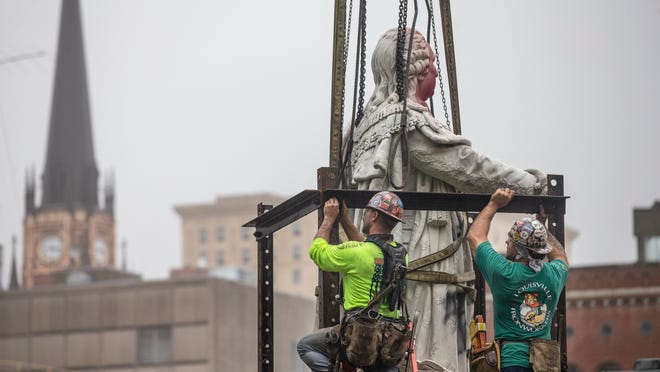’20 steps ahead’ of the competition: Ariel Thompson struts into role as Miss Black Kentucky
Ariel Thompson has proven she's ready for the spotlight.The Bluegrass State's new Miss Black Kentucky USA was crowned earlier this month, winning the "Miss Division" competition at the pageant on Oct. 9. Thompson is one of three Miss Black Kentucky division winners, along with Teen Division winner Nia Franklin and Ms. Division winner Dominique Joy Thompson. The trio were among 15 women and girls who showcased their talents for a chance at prizes, a $5,000 scholarship and a historic pageant title.The event ― which took place this year for the first time in at least a decade ― was hosted at the Louisville Memorial Auditorium and welcomed Black women to compete as themselves, regardless of who they are or where they've come from. About 250 friends and family members were in the crowd, said Ashley Anderson, executive director of Miss Black Kentucky.And Thompson, who took home the title, said her crowning moment came against all odds.An HBCU grad with big dreamsThompson was born and raised in Louisville's West End, an area she still calls home. The 24-year-old pageant winner was raised by her grandparents ― and that means she's no stranger to adversity, she said."I was facing a lot of statistics, and I was constantly told 'You fall into this category,'" Thompson said.You may like:No one laughed when heckler threw a beer can at a Kentucky comedian – until she chugged itBut when Thompson looked at what was possible in her own life, she said, she saw much more.Thompson left the West End to attend Kentucky State University, a historically Black university in Frankfort, where she earned a bachelor's degree in mass communication with a minor in speech communications. Nowadays, Thompson works at Simmons College, Louisville's only historically Black college, as a residence life coordinator.Her background continues to shape her life and her ambitions.In February, Thompson announced on Instagram that she plans to publish a children's book about grandparents raising their young grandchildren. It's one of four books she said she's working to write that will "cover major issues we face within the Black community that we find difficult to discuss with children."A system not made for Black womenThompson has a list of titles she could rattle off from past pageants. She was first runner-up at her first pageant, Miss Black and Gold at Kentucky State, a top-15 finisher in Miss Kentucky pageants in 2021 and 2022 and second runner-up at Miss Kentucky Earth, which works to bring awareness to environmental issues.But the role models in her life, she said, are the reason she's found success on the stage.Anderson, Miss Black Kentucky's executive director, has been a major inspiration, she said, and the two have a lot in common.Anderson, like Thompson, grew up in the West End and has a long history in pageantry. She once competed in Miss Black USA as Miss Black Ohio, she said, where she was fourth runner-up. It was a rewarding experience, she said, but not as rewarding as connecting with other Black women with similar goals and values.Breonna Taylor:Kenneth Walker says on night of Breonna Taylor's death, his only crime was 'being Black'Anderson knew Kentucky needed an opportunity for girls and women like Thompson to compete as well. Miss Black Kentucky, she said, was her way of using her experience as "a little girl on Eighteenth and Hill Street with not a whole lot of hope and role models" to uplift other Black women and give them the same opportunities of "empowering the community."And Thompson, like Anderson, said she was often the only Black woman in pageants she'd previously competed in. Miss Black Kentucky, she said, has been a chance for her and other Black women to build a supportive community."I didn't always want to be patronized," Thompson said. "I didn't always want to be looked at as an anomaly ... while I'm just trying to make a difference."Facing extra judgment is taxing, she added. "You always have to be 20 steps ahead just to become noticed ― not to win, but to be noticed.""I've had coaches I've had to drop because of microaggressions and comments towards Black women, or even comments towards me, about my hair being too big," Thompson said.Thompson said her experience as a Black woman ― and as a Black woman in Louisville ― has shaped her, though. And she brings that experience to the stage.At the Miss Black Kentucky pageant earlier this month, Thompson used the talent portion of her show to honor Breonna Taylor, a Black woman shot and killed by Louisville Metro Police officers serving a no-knock warrant at her apartment in 2020. She speed-painted a portrait of Taylor in 90 seconds during the show, as "Stand Up" by Cynthia Erivo played."Far across the river, do you hear freedom calling?" its lyrics read. "Calling me to answer, gonna keep on going."What's next for Miss Black Kentucky?Miss Black Kentucky USA gave Thompson a place to "actually bond with other contestants" for the first time in her pageant experience, she told The Courier Journal. The event puts the challenges Black women face in pageantry to the forefront of conversations, she added.Personal experience led her to base her pageantry platform around mental health. Her grandparents enrolled her in therapy at a young age, she said, which molded Thompson into a strong advocate for counseling.Thompson hosts mentorship events for young women and girls and collaborates with organizations like the Boys & Girls Clubs of America along with local churches to host them, she said.One of her favorites, Thompson said, is called "Girl Code," with attendees from 4 years old to 40. The yearly event focuses on fostering positive mental health for Black girls and women, Thompson said, and participants use vision boards to illustrate how they can achieve their goals ― regardless of where they're from.Opinion:Why these Black women of Louisville are our city's superheroesThompson's passion for mentorship and mental health inspires her career goal of becoming a clinical psychologist, she said, but for now, she's ready to step up as Miss Black Kentucky USA. She'll go to Washington, D.C. next August to represent the Bluegrass State at Miss Black USA.Her story, she said should show girls and women that they should pursue their dreams, regardless of what others say."That doesn't matter. What matters is what's in your heart and what's in your mind and what you put your mind to," Thompson said.Contact reporter Rae Johnson at [email protected]. Follow them on Twitter at @RaeJ_33.







